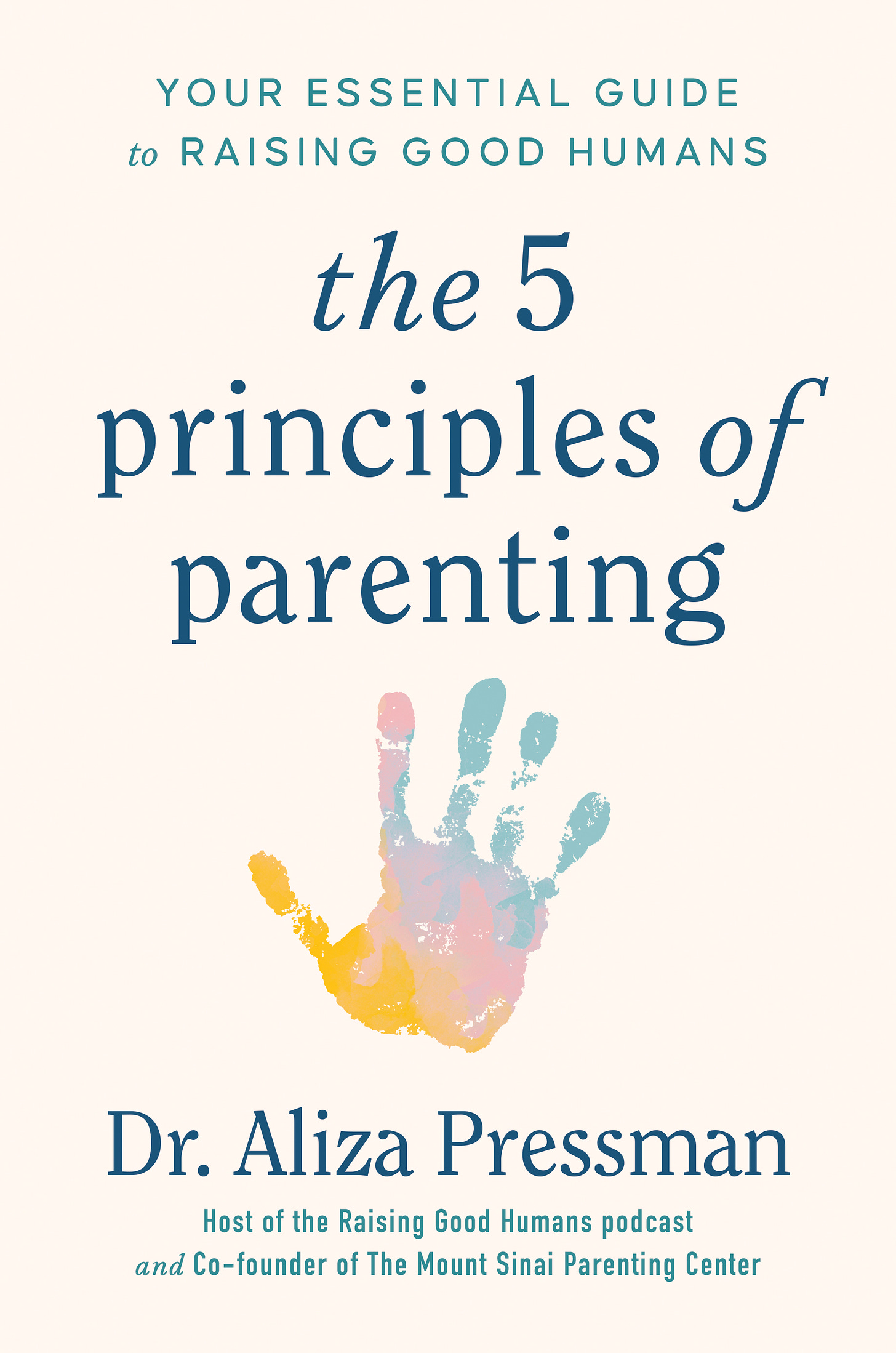Thanks for reading Raising Good Humans on Substack! My first book, The Five Principles of Parenting: Your Essential Guide to Raising Good Humans is now available for purchase here.

In today's world, where information is abundant and misinformation is rampant, critical thinking skills are more crucial than ever. These skills are not just for academics or professionals; they are life skills that empower individuals to make informed decisions, solve problems effectively, and navigate the complexities of the world. Many of us, also, worry about our children’s abilities to solve problems effectively, thanks to our own over-parenting culture, and all of the ways we have nurtured our children right out of their own skills. The good news? There is help. As parents, we play a pivotal role in fostering critical skills in our children from a young age. These are not skills we are born with, these are skills we grow.
What do we mean by critical thinking? Critical thinking involves the ability to analyze information objectively, evaluate evidence, identify biases, and form logical conclusions. It goes beyond rote memorization, and encompasses higher-order thinking skills such as analysis, synthesis, and evaluation. At its core, critical thinking is about asking questions, challenging assumptions, and seeking evidence to support claims. It sounds simple, but it is far from it.
Research in neuroscience and cognitive psychology has shed light on the brain processes involved in critical thinking. Studies have shown that critical thinking engages various regions of the brain, including the prefrontal cortex, which is responsible for executive functions such as planning, decision-making, and self regulation. Furthermore, critical thinking involves the interplay of cognitive processes such as attention, memory, and metacognition (thinking about thinking). It’s important to note that the prefrontal cortex, otherwise known as the “wizard brain” isn’t fully developed until we are in our late 20’s. That means that our ability to make good decisions, weigh consequences, and take action is under construction for the entirety of our childhoods and adolescence. Ouch.
The development of critical thinking skills is a gradual process. In toddlerhood, it might be as simple as a child figuring out how to stack blocks to build a tower, demonstrating problem-solving skills. As children grow, their critical thinking becomes more sophisticated. A preschooler might question why the sky is blue, showcasing curiosity and a desire to understand the world around them. In elementary school, children might analyze characters' motives in a story, demonstrating their ability to evaluate information and form opinions. During adolescence, teens might debate current events, showcasing their ability to consider different perspectives and construct logical arguments.
Parents play a critical role in supporting these skills - and creating environments in which our children can thrive. It is NEVER too late to grow capacity in this area, remember that even the brain research agrees!
3 Skills to Work on for Each Age
Toddlerhood
Encourage Curiosity and Exploration
Toddlers are naturally curious and eager to explore their surroundings. Encourage their curiosity by providing opportunities for hands-on experiences, asking open-ended questions, and allowing them to experiment and discover.
Read Together
Reading books with your toddler introduces them to new ideas and perspectives. Ask questions about the story and characters to stimulate their thinking.
Problem-Solve Together
When your toddler encounters a problem, guide them through the process of finding a solution. This helps them develop problem-solving skills, a key component of critical thinking.
Preschool and Early Elementary
Ask Open-Ended Questions
Instead of asking questions with a single right answer, ask open-ended questions that encourage your child to think creatively and consider multiple possibilities.
Play Games that Promote Critical Thinking
Games that involve strategy, problem-solving, and decision-making can help develop critical thinking skills. Examples include chess, checkers, and puzzles.
Encourage Debate and Discussion
Engage your child in discussions about topics that interest them. Encourage them to express their opinions and support their arguments with evidence. Be open to hearing AND learning from them.
Middle School and High School
Teach Media Literacy
Adolescents are exposed to a vast amount of information from various media sources. Teach them how to evaluate the credibility of sources, identify biases, and distinguish between facts and opinions.
Challenge Assumptions
Encourage your teen to question assumptions and stereotypes. Help them understand that there are multiple perspectives on any given issue.
Foster Intellectual Curiosity
Support your teen's interests and encourage them to explore topics in depth. Provide them with resources and opportunities to learn independently.
For Everyone, at Every Age
Model Critical Thinking
Children learn by observing us. Demonstrate critical thinking in your own life by asking questions, evaluating evidence, and being open to new ideas.
Create a Safe Space for Questions
Let your child know that it's okay to ask questions and challenge ideas. Create an environment where they feel comfortable expressing their thoughts and opinions without fear of judgment.
Embrace Mistakes
Mistakes are a natural part of learning. Allow your child the space to make their own mistakes (don’t run interference), and view them as opportunities for growth.
Remember that critical thinking is not just about being right; it's about the process of inquiry, and the willingness to consider different perspectives. By nurturing your child's critical thinking skills, you are equipping them with the tools they need to take on the natural challenges life brings us. The struggle now is worth the payoff.
A quick reminder to buy my first book, The Five Principles of Parenting, and write a review from wherever you order. Reviews really help to get the book noticed, and to spread the word. Please especially rate and review any books purchased on Amazon (it shockingly really, really matters!). Also, when you receive the book, snap a quick pic with it and post on social media. Share one thing you love about it and help me to get more copies into the hands of parents in your community. Tell a friend about the book, or about something you found helpful in the book. Parents look to each other for advice, and I’d love to be a part of the support you pass on to your loved ones.





